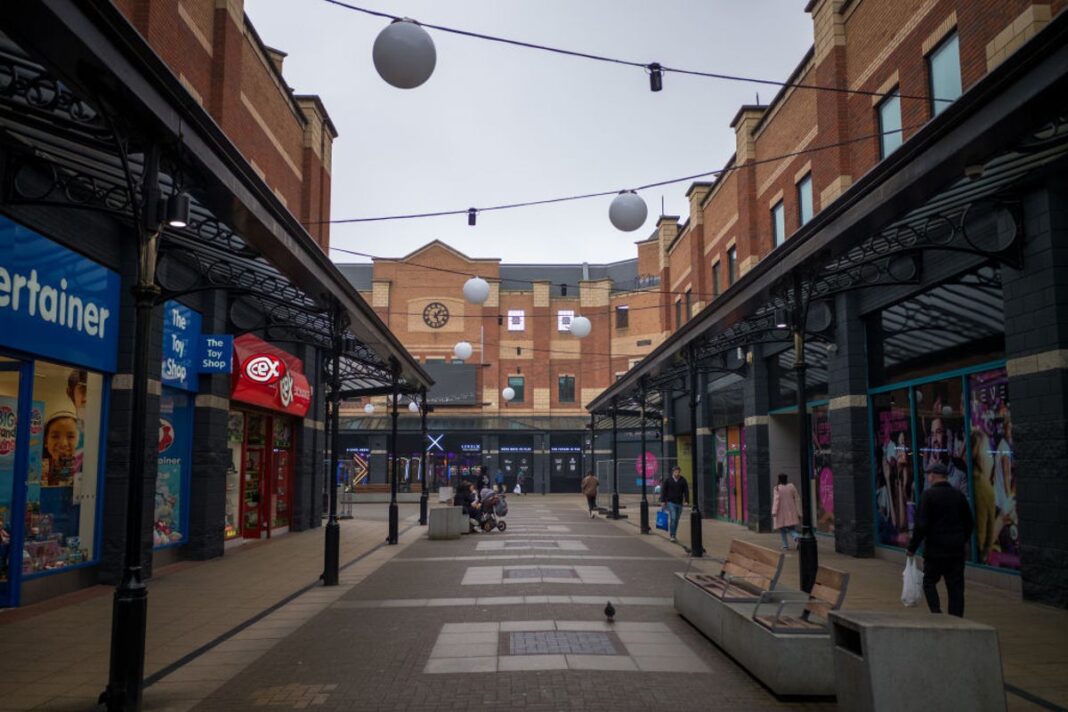For businesses across the UK, the start of the new financial year in April is a particularly difficult time of the year. Changes to energy bills, contracted costs like broadband or mobile phones and so on all represent one thing: rising costs.
But this year it’s likely to be even worse: the rise in National Insurance costs and an increased minimum wage means SMEs and multinational corporations alike across the UK will have been planning and working out for weeks now how they can absorb, or pass on, the increased expenses.
The knock-on effects may be higher prices or lower investment, fewer jobs or reduced hiring – but there’s another factor in the works too, which might have an equally significant hit on certain sectors.
That’s the effective rise in costs for business rates in the Retail, Hospitality and Leisure (RHL), due to come into play on 1 April 2025 after being confirmed in Rachel Reeves’ October budget.
At the moment shops, bars, gyms and other businesses in RHL benefit from a 75 per cent rate relief scheme (up to a £110,000 cap), introduced in late 2022, as businesses struggled amid surging costs, rocketing inflation and the wider post-pandemic recovery. As of next month, that relief is set to drop to 40 per cent.
While that means the actual direct value or amount of rates aren’t necessarily changing, the real cost to businesses – the amount of money they’ll have to fork over for them – will. In some cases it is estimated they may face as much as a 140 per cent increase.
RLH businesses aren’t the only organisations set to be affected, though they may well see the most notable impact. Also, the reduction of the discount rate isn’t the only change, with the “multiplier rate” – the figure used to work out the cost of rates in conjunction with the building valuation – also going up for more expensive premises.
The outcome will be higher income for councils and the government but, as property consultancy company Montagu Evans told The Independent, the changes last year were made with an expectation that the nation would see more economic growth than it has done so far.
“April 2025 will see both a 1.6 per cent increase the standard multiplier (for rateable values greater than £51,000) coupled with a material reduction in the RLH scheme discount,” said Josh Myerson, head of rating advisory at the firm.
“Public schools will also lose their access to the mandatory 80 per cent relief on their liability.
“The net result will be an increase in business rate receipts but at this point it’s not possible to quantify the exact levels. The changes were made at a time when the economic landscape was expected to be rosier, and it remains to be seen whether this will be enough to make an impact on the wider economic environment.”
To offer a real-terms example, a business with a premises liable for £25,000 rates would right now, with 75 per cent discount, be paying £6,250 a year without any other relief they may be entitled to. Once the 40 per cent discount replaces it, that increases to £15,000 a year.
Colliers estimate, per LLB, that retailers will see average rises in business rates bills from £3,751 a year to £9,003.
For restaurants it’s an average change from £5,563 to £13,351 a year, and for gyms it’s set to rise from £2,942 to £7,060 as of April.

In terms of how impactful that’ll actually be for businesses, it will in part depend on how much they can pass on to customers.
Looking at hotels specifically, economist Stephen Rooney of Oxford Economics explained it may be more difficult for them to pass on higher pricing than it has been previously.
“Ultimately the impact depends on the extent to which the sector feels able to pass on these added costs. Since the pandemic, hotel demand at least did prove to be fairly price inelastic,” Mr Rooney told The Independent.
“However, consumers will obviously have a limit in this regard and there is a growing base of evidence to imply that this limit has been reached, with travel demand now becoming more price elastic. This view is supported by our in-house survey results (Travel Industry Monitor and Travel Trends Survey) which show cost is a big concern and travellers are increasingly seeking value for money.”
If hoteliers and restaurants cannot pass on the increased costs, it means lower profitability for them.
If they do pass them on, it could make the UK – or at least some parts – more costly to visit than other locations, reducing their competitiveness and potentially losing out on custom anyway, Mr Rooney explained.
The smallest businesses and many SMEs may not see any impact at all. Rates are not payable at all if the value of a property is under £12,000, while there’s an additional small business rate relief on properties up to values of £15,000.
And going forward, small businesses at least know what’s facing them for the upcoming year. But it’s still a big jump for those in hospitality and the like to absorb.
“The government has taken steps to freeze the small business multiplier (for rateable values less than £51,000) and it will remain at 49.9p for 2025/26. This should mean that most SMEs occupying properties with qualifying assessments should see no increase in liability in the next rate year,” Mr Myerson said.
“However, the effect of reducing the RLH discount will be keenly felt by SMEs operating in the retail, leisure and hospitality sectors in particular, with many those ratepayers facing dramatic increases as a result.”
Reform is coming, businesses will be pleased to know. An update to the rating system is expected next year and RLH businesses may benefit in the long-term, but others could need to shoulder some of the burden as a result.
“Government is currently involved in a consultation on their upcoming reforms of the rating system. The introduction of a “super supplement” of up to 10p in the pound to fund a reduced multiplier on qualifying RLH properties will have the greatest impact,” Mr Myerson explained.
“Whilst this ought to provide for a more predictable position for RLH properties, no longer being at the whim of a relief that changes year by year, it will give rise to a significant additional burden for those ratepayers coming within scope of the supplement, with values greater than £500,000.”
And, in the meantime, before that reform and certainty arrives, there are only more and more increasing costs to deal with.
The very real concern is that one additional consequence of Awful April is businesses finding one too many rising cost pressures, resulting in them closing their doors for a final time.

